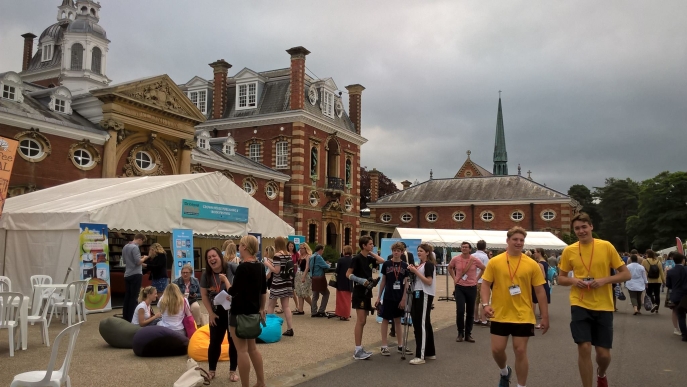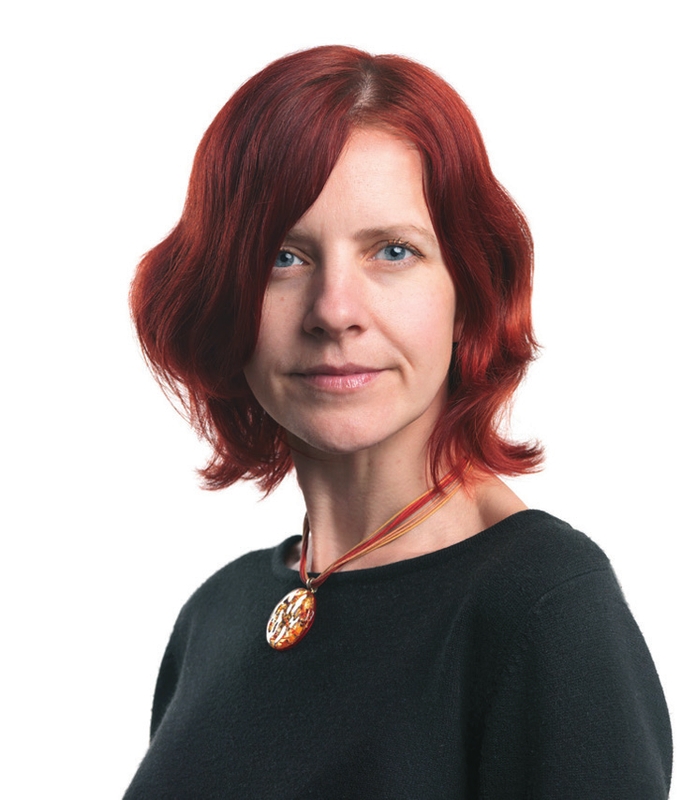Field Report – Festival of Education, Day 1, PM

In her second dispatch from this year's Festival of Education, Helen Mulley learns what mindsets have to do with sheep brains and hears some pointed commentary on inclusion from Vic Goddard…

- by Helen Mulley
- Former editor of Teach Secondary magazine and award-winning podcast host

Having waited until the very last possible minute to grab lunch (the queue for food was of theme-park-on-a-sunny-bank-holiday immensity), I missed the start of Glenn Whitman’s presentation – ‘Are you a neuroteacher… yet?’ – in the Chapel. The great thing about sessions in the Chapel, though, is that it doesn’t really matter what you are listening to, as the space is so exquisitely lovely that you feel a better person just for having sat in it for half an hour.
Actually, Glenn was an engaging and interesting speaker; he’s director of the Center for Transformative Teaching and Learning in Maryland USA, and talked to us about research-based education and its benefits for students and teachers alike, touching on mindsets (and not just ‘growth’, either – oh, no! – apparently, we should also be thinking about a ‘belonging’ mindset, and a ‘purpose and relevance’ one, too), labels, neurobiology and more.
The idea that teaching children how their brain works will help them use their brains better seems so obvious, yet it’s not something that happens as a matter of course in schools, which is something that must be worth looking into more widely. I also now know how to get hold of 30 sheep brains within 48 hours, which makes me feel strangely powerful.
Vic Goddard has written a column in every single issue of Teach Secondary from its launch, and also happens to be one of the loveliest humans in the universe; I couldn’t possibly pass up a chance to hear him in front of an audience here, so that’s where I went next. He spoke with his usual charm, passion and eloquence about inclusivity; what it means to be a genuinely inclusive school – and the challenges and rewards that come with the territory.
He was typically frank about the difficulties leaders have faced over the past few years and will have to tackle moving forwards – and his frustration at the lack of focus on SEND issues within the sector was epitomised by his quietly scathing observation about the much-lauded inclusivity strand at the Festival itself, which is, to be fair, not exactly in the middle of the action (“Where’s it happening? 25 minutes in that direction!”). He also pointed out in passing that he’s a “big fan of cuddles”, a claim I managed to confirm in the few minutes after his session and before the next.
‘No one knows why we do it’
From here, I dropped into the ResearchED room, which had seen another Teach Secondary regular, David Didau, speak earlier. I watched a panel debate titled ‘What use is evidence in education?’, featuring Becky Allen, director of Education Datalab; Sam Freedman, executive director at Teach First (and previously senior policy adviser to the secretary of state at the DfE); and Harry Fletcher-Wood, associate dean at the Institute for Teaching.
The consensus was that evidence is important, of course, but hard to establish for a whole range of reasons from the practical to the ideological. Several concrete suggestions for improvement were raised during the course of the discussion, and during the Q&A at the end many heads nodded as the panel agreed that targets – at least on an individual level – are a ‘bonkers’ intervention for teachers and students alike.
“From the KS2 data,” said Becky, “every single student has a non-zero chance of getting any grade in any subject at GCSE level. And there is literally no evidence at all about the impact on outcomes of telling pupils what grade they are predicted to achieve. No one knows why we do it.” So there you have it.
Depth versus breadth
Finally, I returned to Waterloo Hall, where I had seen Katherine Birbalsingh earlier, to listen to the headteacher of Cottenham Village College, Stuart Lock, explain why ‘pedagogy is overrated’. His point – that we have a tendency at the moment to over-focus on how to teach, instead of identifying what to teach – was definitely appealing.
We owe all kids the opportunity to access the knowledge that educated people take for granted, he argued, and as subject specialists, teachers should be investing the time and effort needed to debate exactly what that should be. You’d be hard-pushed to find a school where the SLT doesn’t include someone responsible for ‘teaching and learning’, he added – but how often is someone in charge of ‘curriculum development’, beyond timetabling and exam options?
Birbalsingh would approve of his emphasis on the delivery of knowledge, his belief in every child’s entitlement to an academic education and his willingness to admit a hierarchy of subjects, I decided. But the two heads have rather different stances on the balance between depth and breadth in an ideal curriculum, with Lock very firmly in favour of the latter over the former. I can’t speak for everyone in the room, of course, but this made his message a lot more palatable for me than The Michaela Way. It was an enjoyable and thought-provoking end to the day.
I’m back at my hotel as I write this; the same place where I stayed last year on June 23rd and went to bed secure in the knowledge that after a hideous EU referendum campaign period, I would, at last, wake up the following morning in a world with some sense of balance and sanity restored. So, y’know, I’m making no assumptions about tomorrow; but I’ll keep you posted.










